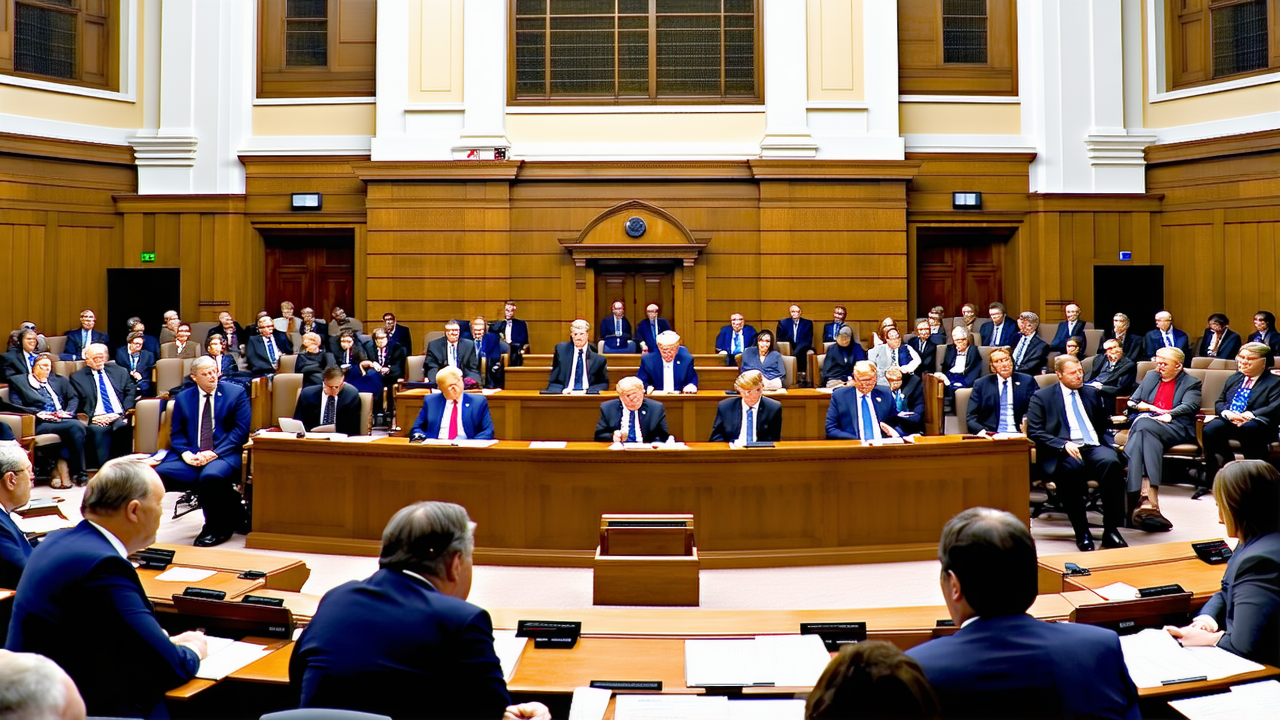Voting Reforms Called a 'Backward Step' by Human Rights Commissioner
Voting Reforms Called a 'Backward Step' by Human Rights Commissioner
In a bold critique of the coalition government, the Chief Human Rights Commissioner has labeled recent voting reforms as a 'backward step' for New Zealand's democracy.
The controversial legislation, which aims to ban prisoner voting and same-day voter enrollment, passed its first reading in Parliament with the support of National, ACT, and New Zealand First. Justice Minister Paul Goldsmith has defended the changes, claiming they will modernize outdated electoral laws and streamline the final vote count.
However, the opposition has quickly condemned the proposals as undemocratic, and the Attorney-General has raised concerns over their compatibility with human rights. Dr. Stephen Rainbow, the Chief Human Rights Commissioner and an appointee of Goldsmith, has now joined the fray, expressing deep concern over the potential impact of the reforms.
'We are at a time in history when democratic institutions are struggling to maintain their legitimacy and public trust,' Rainbow said. 'It is bewildering that at such a moment, we would be making it harder for people to participate in voting, a fundamental pillar of democratic faith.'
Rainbow emphasized that New Zealand should be doing everything possible to strengthen its democracy, which includes making voting as accessible as possible. He pointed out that since 1993, voters have been able to enroll up to the day before an election, a process that has become increasingly user-friendly over time.
'To step back from that now seems undesirable and, from a human rights perspective, inappropriate,' he added. 'I don't think this legislative change is helpful to enhancing democracy or encouraging participation, especially among younger people and vulnerable communities.'
While Rainbow stopped short of calling for the legislation to be scrapped, he said he would submit a formal opposition to the bill during the select committee stage. 'It is definitely a backward step,' he said, urging the government to reconsider its approach.
The Electoral Amendment Bill has sparked intense debate, with critics warning that it could disenfranchise thousands of voters, including those who are homeless, in prison, or newly arrived in the country. The government has insisted that the reforms are necessary to ensure a more efficient and secure electoral process.
As the bill moves forward, the focus will be on whether the changes will truly serve the interests of New Zealand's democracy or if they will alienate key segments of the population. The coming weeks are likely to see further scrutiny and public debate on the issue.
In the meantime, the Human Rights Commission and other advocacy groups are expected to push back against the reforms, arguing that they undermine the very principles of inclusion and fairness that democracy is built upon.
